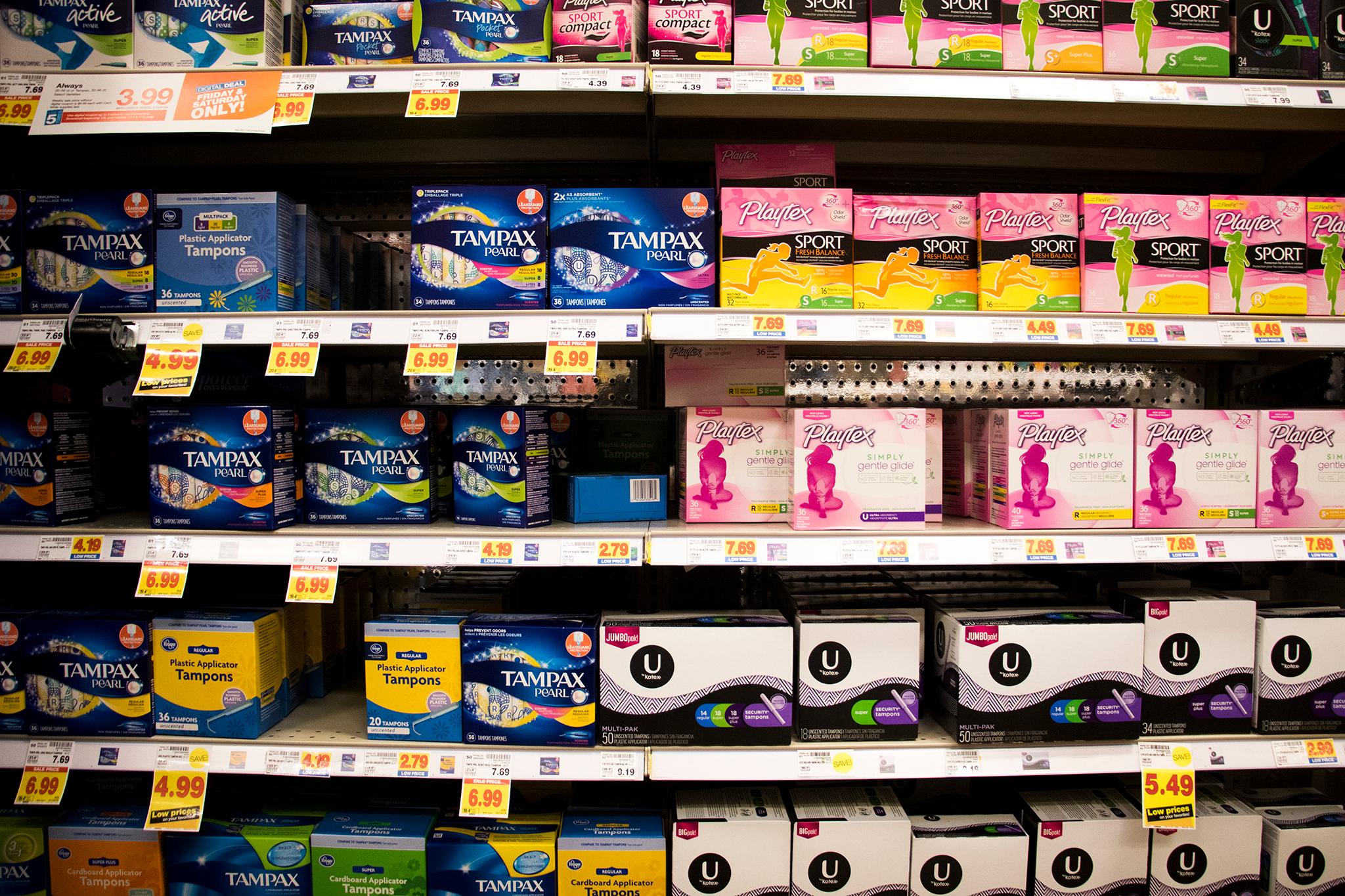Women have no choice but to pay taxes on some products that men never have to buy.
Denver City Council President Jolon Clark is exploring the possibility of exempting tampons and menstrual pads sold within city limits from sales tax, he said in an interview. An analyst looked into the potential policy at the direction of his office, which is staffed by people who have much more expertise than Clark.
“Honestly I am absolutely not the right person to speak about this at all,” Clark said. “But I have three amazing, intelligent women who are thought brokers in the work that I do, who brought this to my attention and I back this 100 percent.”
While Colorado considers menstrual products related to grooming or hygiene and therefore subject to sales tax, the Food and Drug Administration considers them medical devices. Clark said taxing these things is “insane” because “menstruation is not a choice.”
We don’t have city-specific numbers yet, but before taxes, Coloradans spend about $60 per woman per year on “feminine hygiene” products, according to estimates from a fiscal analyst at the state legislature. That breaks down to $1.71 per woman in sales taxes, which banks state coffers $2.4 million annually.
Sales taxes on menstrual items “disproportionately impact low-income women and women experiencing homelessness,” the city’s analysis states. And women experiencing homelessness change their tampons less often, subjecting them to a higher risk of infection and toxic shock syndrome.
Rep. Susan Lontine proposed a bill last session to exempt feminine health products, but it failed. Clark believes the city can exercise local control, but he’s still waiting on a legal opinion. He also wants to understand the reason the exemption failed at the legislature. Lost revenue? A slippery slope that could end up removing taxes from toilet paper?
“My guess would be once you start picking at it, that it gets so complicated,” Clark said. “There are probably interest groups and lobbyists that would be part of the discussion.”
Lontine’s office would not provide an interview on the subject.
Connecticut, Washington, D.C., Florida, Illinois, Maryland and Massachusetts have sales taxes, but exempt tampons, pads and other feminine health products, city documents state.
There’s no structured bill proposal yet, Clark said. Killing the “tampon tax” is technically just an idea until further notice.













